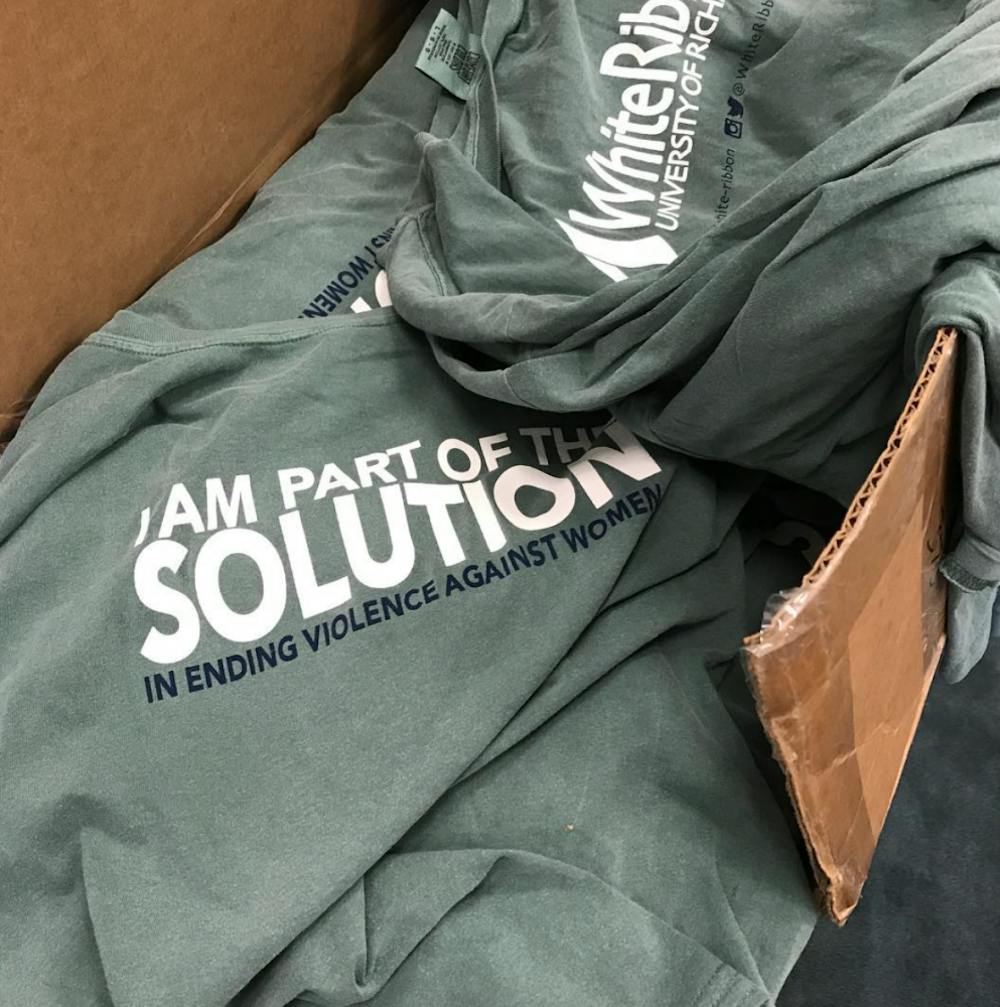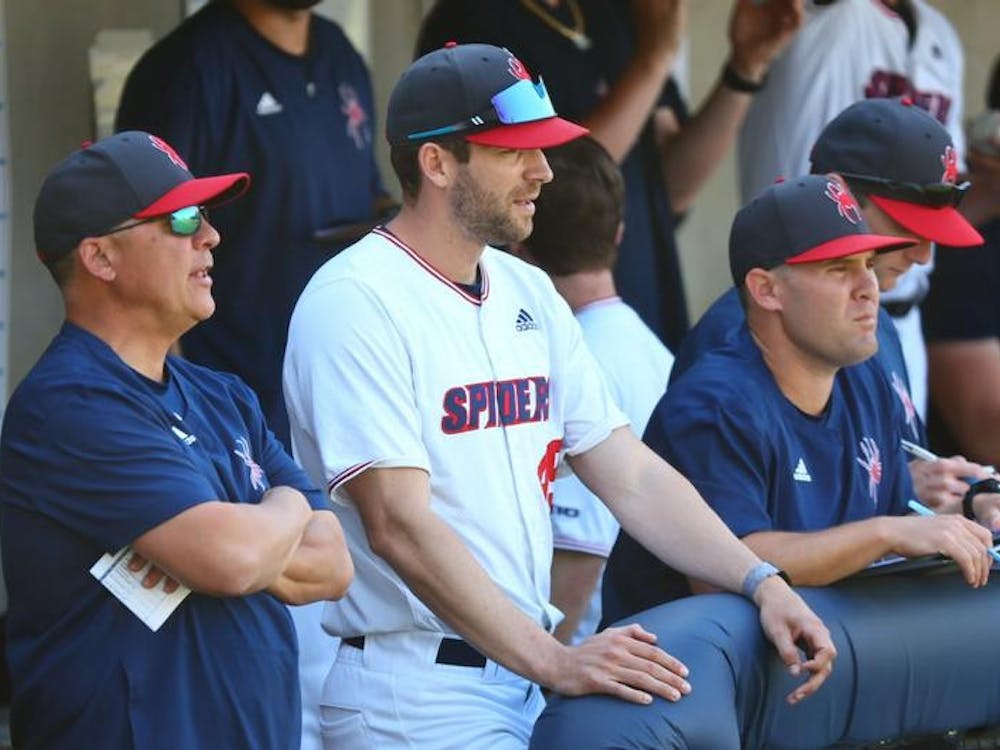The White Ribbon Campaign is getting a fresh start at the University of Richmond this November after taking last year off to rebrand and repackage.
WRC, a movement that focuses on ending sexual violence against women, was created in 1991 by a group of men in response to a 1989 massacre of female students at the University of Montreal, according to the WRC website.
“I think some people might view that as a ‘men helping women’ campaign, but I think I tend to see it more as a ‘men helping men’ campaign,” Abbas Abid, senior and Richmond Student Government Association president, said.
Women seem to be carrying a lot of the burden of sexual violence already, Joe Boehman, dean of Richmond College, said.
“The reason this campaign focuses on men is that I feel it is beyond time for them to step up,” Boehman said. “I believe firmly that men can be part of the solution. The big piece of that is talking with men about the fact that we know statistically that a small percentage of men commit acts of violence, but there is a larger percentage of men that allow it to happen.”
WRC has spread to more than 60 countries around the world since its founding and has more than 300 colleges and universities across the United States that participate in it.
Patrick Benner, director of residence life and undergraduate student housing, was working as assistant dean of Richmond College in 2006 when he brought WRC to UR.
The goal of the campaign is twofold, Boehman said. The first goal is to raise awareness about the violence and how to combat it, and the second is to show that there are men on this campus who are committed to ending violence against women.
The first phase involved with reaching these goals is wearing a wristband, which Boehman said is a very small commitment. The second phase would be signing up online for a t-shirt and signing a pledge that states: “From this time forward, I promise to be part of the solution to ending violence against women."
The third phase, Boehman said, is wearing the t-shirt and developing the ability to talk about its importance.
“I want you to wear these shirts and if someone says ‘Tell me about this,’ I want you to know what this means and to talk about it,” Boehman said.
WRC used to take place at UR during one week in November or December. During the week, members of the administration would give away prizes at sports games and table in the Commons, Boehman said, but the campaign only lasted for that short time. Now, WRC has the chance to become a constant force on UR’s campus, he said.
Enjoy what you're reading?
Signup for our newsletter
“One of the things I’m hoping for with this is that it’s going to be viral and it’s going to be throughout the year,” Boehman said. “There’s going to be more than a few times where I’m going to email everybody that has a shirt and say, ‘Next Thursday, wear your shirt,’ and have that visible presence.”
Another big change for WRC this year was partnering with the Interfraternity Council (IFC).
“For the IFC, we have a pretty unique ability to reach all across campus because our members are involved in so many different things,” Dave Fishman, senior and IFC president, said.
The administration has been doing most of the grunt work for the campaign in the past, Abid said. He believes that it is the student perspective that carries the most weight, however, and hopes to see it become even more of a student initiative in the future.
Meg Pevarski, director of Greek life on campus, said her job was to support the governing council.
“Similar to any initiative that they would have, the students are doing the legwork,” Pevarski said. “My job is to answer questions, provide feedback, be at meetings and be supportive.”
It’s up to the students to be the ones to take initiative around this campaign if we want it to reach the next level, Boehman said.
“I can put on programs, I can be visible during the day,” Boehman said. “What happens at parties, what happens in the evenings, what happens at lodges, I’m not there. Hopefully, the students who have signed up for these shirts and are wearing the wristbands -- when situations are occurring -- they look down at that wristband and think ‘This is my time to be part of the solution. How am I gonna do that?’”
Contact features writer Anna Ricci at anna.ricci@richmond.edu.
Support independent student media
You can make a tax-deductible donation by clicking the button below, which takes you to our secure PayPal account. The page is set up to receive contributions in whatever amount you designate. We look forward to using the money we raise to further our mission of providing honest and accurate information to students, faculty, staff, alumni and others in the general public.
Donate Now



